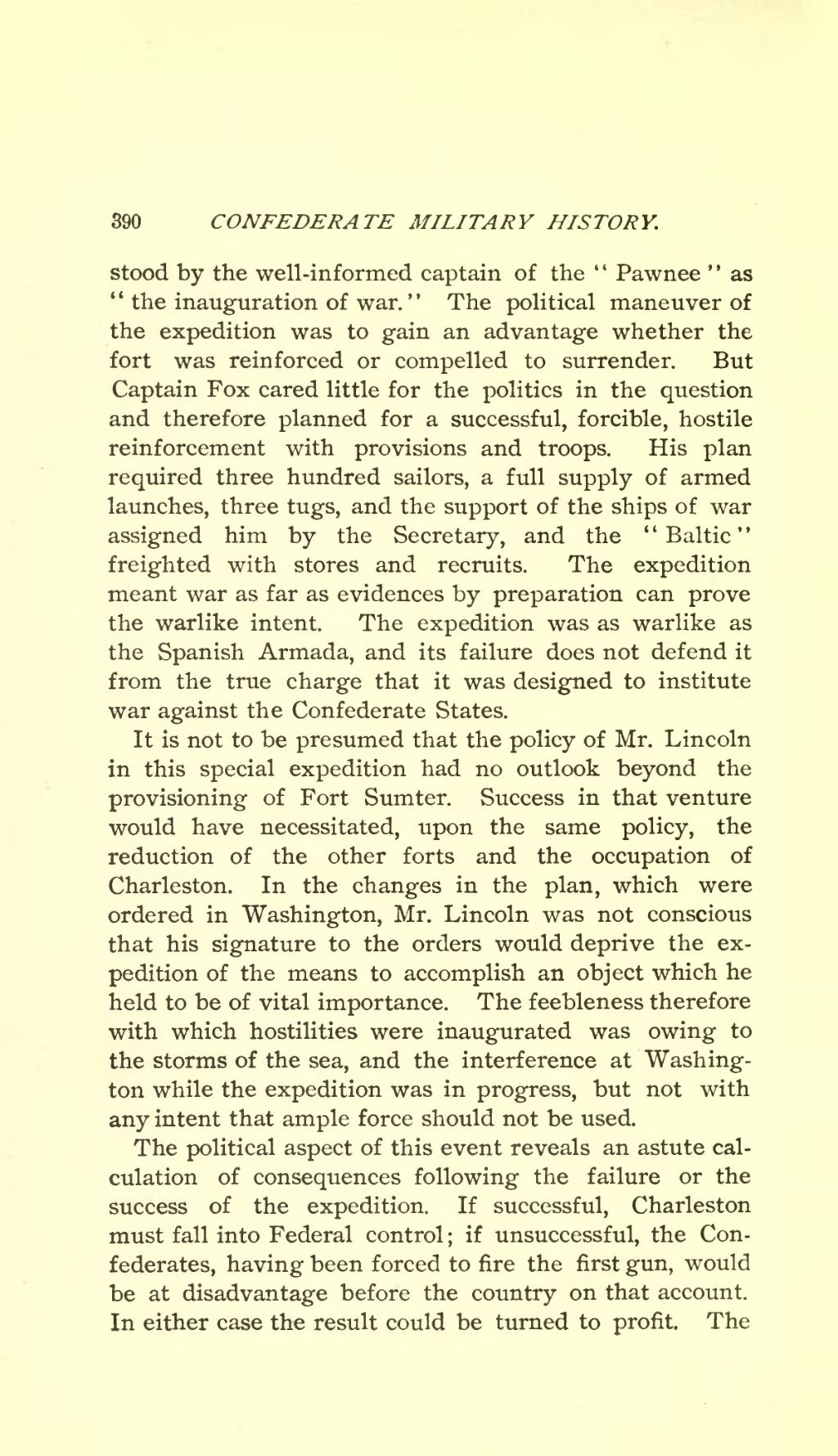stood by the well-informed captain of the Pawnee as "the inauguration of war." The political maneuver of the expedition was to gain an advantage whether the fort was reinforced or compelled to surrender. But Captain Fox cared little for the politics in the question and therefore planned for a successful, forcible, hostile reinforcement with provisions and troops. His plan required three hundred sailors, a full supply of armed launches, three tugs, and the support of the ships of war assigned him by the Secretary, and the "Baltic" freighted with stores and recruits. The expedition meant war as far as evidences by preparation can prove the warlike intent. The expedition was as warlike as the Spanish Armada, and its failure does not defend it from the true charge that it was designed to institute war against the Confederate States.
It is not to be presumed that the policy of Mr. Lincoln in this special expedition had no outlook beyond the provisioning of Fort Sumter. Success in that venture would have necessitated, upon the same policy, the reduction of the other forts and the occupation of Charleston. In the changes in the plan, which were ordered in Washington, Mr. Lincoln was not conscious that his signature to the orders would deprive the expedition of the means to accomplish an object which he held to be of vital importance. The feebleness therefore with which hostilities were inaugurated was owing to the storms of the sea, and the interference at Washing ton while the expedition was in progress, but not with any intent that ample force should not be used.
The political aspect of this event reveals an astute calculation of consequences following the failure or the success of the expedition. If successful, Charleston must fall into Federal control; if unsuccessful, the Confederates, having been forced to fire the first gun, would be at disadvantage before the country on that account. In either case the result could be turned to profit. The
